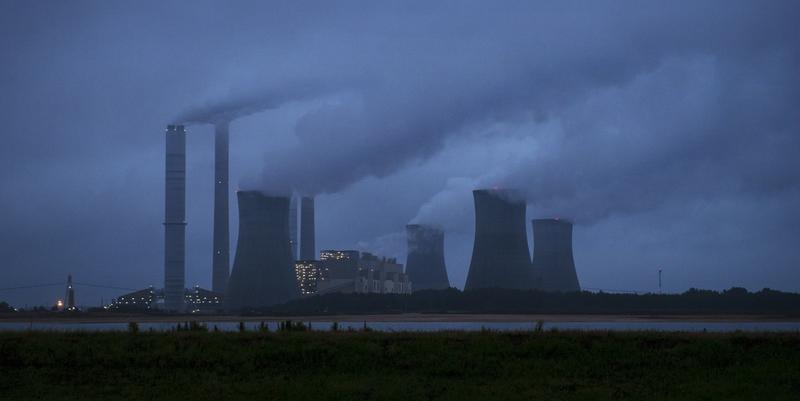After Supreme Court Ruling, Ga. To Stop Work On Climate Plan

Georgia is one of 27 states that had asked the U.S. Supreme Court to delay implementation of the Obama administration’s Clean Power Plan.
Georgia will stop its work toward implementing the Obama administration’s Clean Power Plan.
Georgia is one of 27 states that had asked the U.S. Supreme Court to delay implementation of the plan. The court granted the stay Tuesday night.
The Clean Power Plan is a key piece of the Obama administration’s efforts to tackle climate change by reducing greenhouse gas emissions from power plants. Under the rule, the EPA sets carbon reduction goals for each state. How to achieve those goals is left up to the states to decide for themselves.
Once the plan was finalized last year, Georgia and 26 other states sued to block the Clean Power Plan, and asked for a stay to keep the plan from going into effect until the suit is settled.
Meanwhile, the state was also moving ahead on the plan – holding stakeholder meetings and reviewing clarifications from the EPA. Those efforts will stop now that the U.S. Supreme Court, in a 5-4 decision, has granted the stay.
“We are pleased that we will not have to continue expending those resources on a rule that we don’t know if it will stand,” said Mary Walker, assistant director of the Georgia Environmental Protection Division. “We will go back to our day jobs and do the air quality monitoring and the permitting and the planning that we normally do. And we will track the progress through the court, and if the rule is upheld we will do what is required.”
Georgia Attorney General Sam Olens celebrated the decision by the Supreme Court.
“This is a victory against an out-of-control Environmental Protection Agency,” Olens wrote in a statement. “We will continue to fight this executive overreach which will put Americans out of work and drive up the cost of electricity for consumers.”
The Georgia Public Service Commission, which regulates utilities, and Georgia Power both welcomed the stay.
“We continue to believe that the Clean Power Plan could negatively impact reliability and affordability of electricity in the state of Georgia and are pleased with the court’s decision,” said Georgia Power spokesman Jacob Hawkins.
Kurt Ebersbach, an attorney at the Southern Environmental Law Center, said the Supreme Court stepping in was unexpected, but it won’t completely derail general trends away from coal and towards renewable energy.
“There were many positive things going on before the Clean Power Plan was announced, like the growth of solar in Georgia, and I think those things are going to continue even while the rule is stayed.”
Environmental lawyer Robert Jackson, senior attorney with the Atlanta firm GreenLaw, emphasized that this decision to delay implementation of the Clean Power Plan is not, in fact, the end of the road for the rule entirely.
“I expect that the Clean Power Plan will ultimately prevail in the courts and that this lawsuit is just all about politics,” he said. “It is amazing to me that the state of Georgia would participate in such gargantuan waste of time and money as a lawsuit to stop the Clean Power Plan.”
The case will be argued in the D.C. District Court this June.
9(MDAxODM0MDY4MDEyMTY4NDA3MzI3YjkzMw004))






